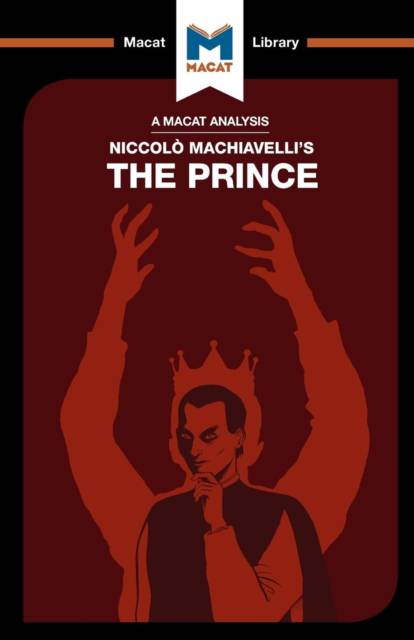
- Retrait gratuit dans votre magasin Club
- 7.000.000 titres dans notre catalogue
- Payer en toute sécurité
- Toujours un magasin près de chez vous
- Retrait gratuit dans votre magasin Club
- 7.000.0000 titres dans notre catalogue
- Payer en toute sécurité
- Toujours un magasin près de chez vous
Description
How should rulers rule? What is the nature of power? These questions had already been asked when Niccolò Machiavelli wrote The Prince in 1513. But what made his thinking on the topic different was his ability to interpret evidence: to look at old issues and find new meaning within them.
Many of Machiavelli's contemporaries thought that God would make sure morality was rewarded. To these people, it was inevitable that ethical individuals would enjoy success in this world and attain paradise in the next. Machiavelli was not so sure. He used the evidence of history to prove that people who can lie, cheat and murder tend to succeed.
Machiavelli concluded that three main factors affect a political leader's success or failure. In doing so, he reached an entirely new understanding of the meaning of his evidence. Machiavelli argued that behaving in a moral way actually hinders a ruler. If everyone acted morally, he reasoned, then morals would not be a disadvantage. But in a world in which leaders are willing to be ruthless, a moral leader would make both themselves and their state vulnerable. Machiavelli's novel interpretation posits that morals can make a leader hesitate, and this could cost them - and the citizens they are responsible for - everything.
Spécifications
Parties prenantes
- Auteur(s) :
- Editeur:
Contenu
- Nombre de pages :
- 100
- Langue:
- Anglais
- Collection :
Caractéristiques
- EAN:
- 9781912127610
- Date de parution :
- 15-07-17
- Format:
- Livre broché
- Format numérique:
- Trade paperback (VS)
- Dimensions :
- 129 mm x 198 mm
- Poids :
- 104 g

Les avis
Nous publions uniquement les avis qui respectent les conditions requises. Consultez nos conditions pour les avis.






